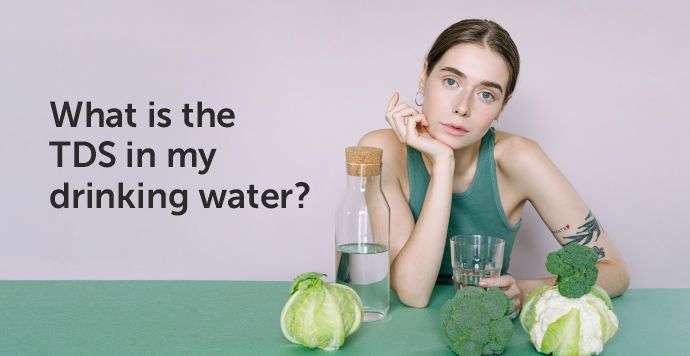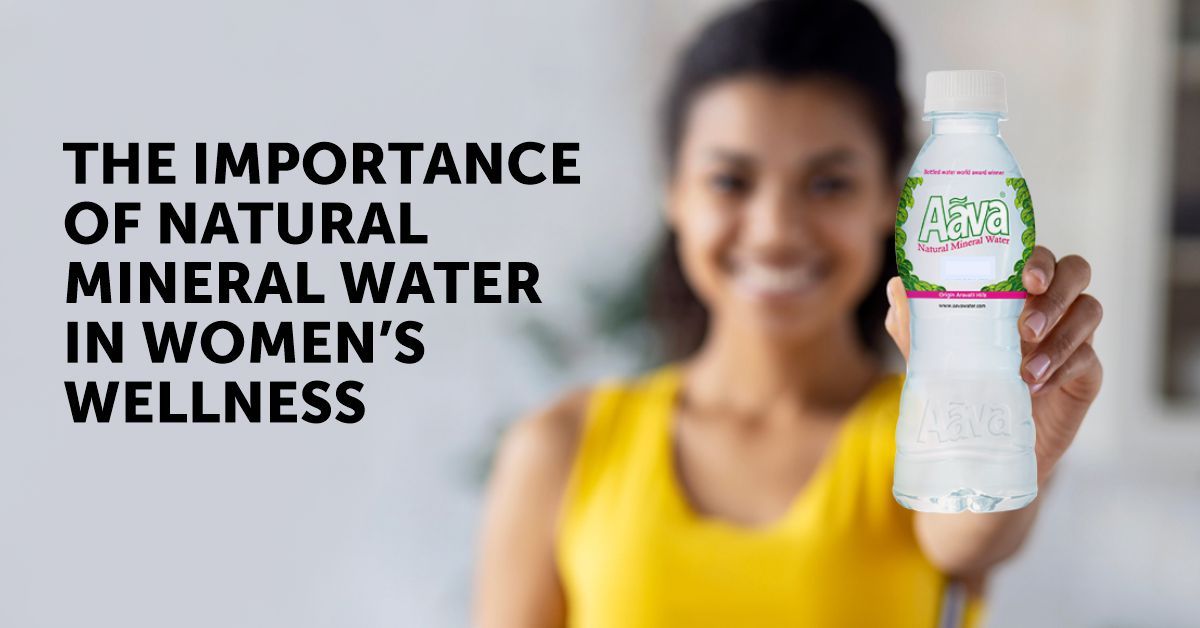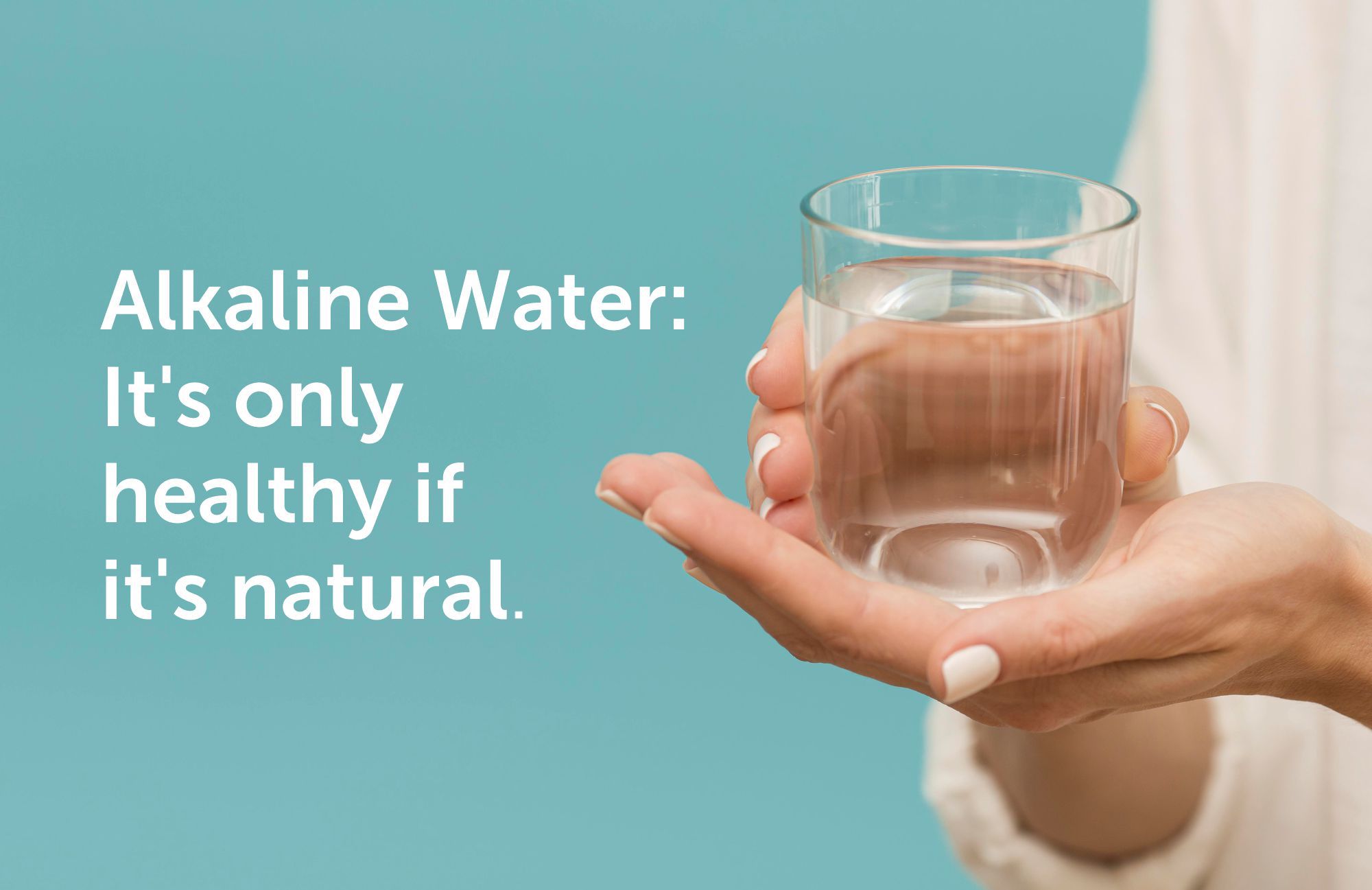Why the TDS of Your Drinking Water Matters

Have you ever noticed the taste of your drinking water? If you haven't, all the more reason to read this article. When you drink natural mineral water like Aava that's sourced from a protected confined aquifer, the geology and conditions of the source give the water a unique mineral composition. In wine terms, it's the closest you get to water with terroir.
Natural Mineral Water's subtle taste and terroir are determined by the minerals it contains. This minerality is measured in mg/l and is called Total Dissolved Solids (TDS) or Total Dry Residue. This TDS can be measured with a TDS meter or water is evaporated at 180 degrees in a lab and the weight is measured of the minerals that are remaining. TDS includes all the minerals that are present in mineral waters. Depending on the TDS mineral waters can be divided into the following categories.
Super Low | 0 - 50mg/l
Low | 50- 250 mg/l
Medium | 250- 800mg/l
High | 800 - 1,500mg/l
Very High | 1,500mg/l & over
Minerals are usually absorbed from the earth. If your natural mineral water is glacier or iceberg water chances are it will usually have a super low TDS. However if you drink RO processed or purified packaged drinking water, the RO machines remove all minerals from the water along with impurities resulting in a super low or low TDS as well. High and very high TDS waters are not advised for daily consumption either. For eg. Sea water has of 25000 mg/l which makes it undrinkable. The TDS of Aava natural mineral water ranges from 280-320 which makes it a perfectly balanced medium minerality water. The WHO's ( World Health Organisation) Guidelines for Drinking-water Quality (GDWQ) recommend 300 as the ideal TDS.
If your mineral water is certified IS 13428 spring or underground spring water like Aava is, the TDS refers to the minerals that are essential for good health and an important part of your diet. These minerals have tremendous health benefits.
Magnesium (Mg ++)
Did you know that magnesium is responsible for 300+ biochemical reactions in your body? Magnesium is important for the regulation of muscle contractions and the transmission of nerve impulses, and it activates energy-producing enzymes. The bone structure also relies on magnesium, and the element expands blood vessels, which lessens the risk of heart attack. Humans need at least 300-400 mg of magnesium each day and every litre of Aava naturally contains 11.5 mg/l magnesium.
Calcium (Ca ++)
The many benefits of calcium include stabilizing the bone structure, teeth, and cell membranes; ensuring nerve and muscle impulses are properly transmitted; and help prevent blood clots. Bones decalcify (osteoporosis) and fractures become more likely if a body is not getting enough calcium. Adults and especially premenopausal women need 800-1200 mg calcium and every litre of Aava contains an average of 23mg/litre.
Bicarbonate (HCO3-)
Present in all biological fluids, bicarbonate is essential for maintaining our bodies' pH balance. The substance is also found in stomach secretions. Lactic acid generated by physical activity is neutralized by bicarbonate dissolved in water; a similar process raises the pH of some acidic foods. Bicarbonates are the key to healthy digestion and curbing acid reflux and every litre of Aava contains at least 200-250 mg bicarbonate per litre.
Silica (SiO2)
Most adults need between twenty and thirty milligrams of silica daily. Silica reduces the risk of heart disease and may prevent osteoporosis; it also helps repair tissue by serving as an antioxidant. Hair and nails are strengthened by silica since its a key mineral for collagen production. Aava is one of India's only naturally alkaline mineral waters with a 13 mg silica content.
Sodium ( Na++)
A person's activity level determines their daily requirement of sodium. The heart's metabolism is affected by sodium, as is the regular contraction of the heart. This sodium is not the same as table salt that's consumed with food, since mineral water contains unprocessed, natural salt. Studies show how ingestion of mineral waters with sodium bicarbonate is beneficial in lowering cardiovascular risk factors, including blood pressure. Aava contains a low sodium content well below 100mg/l.
Besides these other trace minerals like potassium, fluorides and chlorides also play an important role to keep you healthy and hydrated.
The presence of these minerals does not make Aava a hard water. Equating TDS to water hardness is a common misconception. Hardness correlates only to the presence of calcium and magnesium. (Calcium x 2.5) + (Magnesium x 4) is the formula used to calculate this hardness and if the range falls under 120-180 mg/litre, a water is considered to be hard. Hard water affects machines more than humans. Your drinking water must have slight hardness, since minerals are essential for wellness but if you're washing clothes, demineralised soft water will work better for your washing machine.
Aava has a TDS of 300, but its water hardness is only 101, which means Aava is a naturally alkaline mineral water that is only slightly hard. This makes it perfectly safe, healthy and ideal for daily consumption.
So the next time you worry about your water being too hard, check the source, make sure there are no impurities and check for the accurate mineral content to properly measure water hardness. Don't simply judge by the TDS.

07/03/2024
Why Aava Natural Mineral water is a game-changer for women’s health
On International Women’s Day study the impact of natural mineral rich water on women’s health and wellness, especially for those women who suffer from calcium and other mineral deficiencies.

28/07/2023
Beyond the Hype: The Truth about Alkaline Water
Rather than pH, look for water with naturally-occurring minerals for real health benefits. Alkaline water is only truly healthy, if it is natural.


